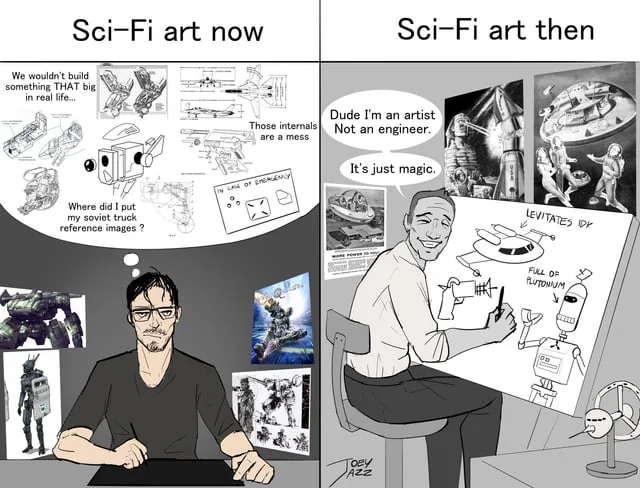this post was submitted on 03 Mar 2024
396 points (98.8% liked)
196
16801 readers
3168 users here now
Be sure to follow the rule before you head out.
Rule: You must post before you leave.
founded 2 years ago
MODERATORS
you are viewing a single comment's thread
view the rest of the comments
view the rest of the comments

Yup. And in the past they didn't have as much scientific knowledge as we do now. So past sci-fi has a lot of concepts that seemed legit back then, but later we found out things simply don't work that way. And there's also ideas of things that would work, but we found better solutions that are more economically feasible later on.
A shuttlecraft that's basically a box with some cylinders strapped onto it made sense in the 1960s. Cylinders are like rockets, what we used for propulsion to get to space. Aerodynamics? Who cares?
But knowing what an actual space shuttle looks like makes people more likely to design something closer to that. And there's a greater understanding of the importance of aerodynamics when entering an atmosphere by everyone so people are less likely to buy into a new design that doesn't make these considerations unless there's some nostalgia involved.
Exactly, what is believable space travel before the space race should be different to what’s believable space travel at the end of life of the international space station. Even beyond what the experts know, now we know more too. In the 60s it would make perfect sense for people to bring orienteering gear onto a new planet, but now it would be ridiculous to not have exploratory vessels have the ability to set up a temporary gps with satellite drones. GPS is an everyday thing that just makes sense to people today.